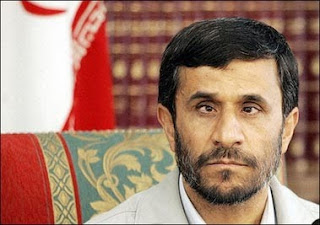
I didn’t know Tom Gorman until I attended his funeral eight years ago.
He was the brother of a colleague of mine, and a Port Authority policeman, badge #1712. Tom was assigned to an emergency medical services unit, which was among the first to respond to the catastrophe at the World Trade Center, and the entire team of eight men was lost.
He was just 41 years old, and left a wife, Barbara, and three children: Laura 15, Patrick 12 and Bridget 9. He coached both his daughter’s basketball team and his son’s Little League baseball team in his hometown of Middlesex, NJ, and was the driving force in creating the girl’s basketball league. He even designed the team’s logo and uniforms, which were the envy of the league. Before becoming a P.A. policeman, he was a fireman for eight years in Bayonne, NJ, the town he grew up in.
But facts are not the measure of the man. The value of Tom’s life was expressed in the words of the people who eulogized him – his hometown friend of 35 years, the buddy he coached with (who saluted him with Tom’s own goofy “Middlesex” cheer in front of a thousand people in the church), the priest who knew him all his life, and his own younger brother, who was working in Tower One and was helped to safety by another Port Authority cop. Representatives of Mayor Giuliani, the Governor of New Jersey and the Port Authority, also spoke.
Through their words we learned that he was dedicated to his family, loyal to his friends, funny if he trusted you, willing to help anyone, a hard-core fireman and policeman who never brought the job home at night.
Words aren’t always necessary. There were a dozen teenaged girls wearing their basketball jerseys over their street clothes, which spoke volumes about Tom’s impact on their lives.
It was an emotional and dramatic event. No amount of pageantry can replace a father, a husband, a son, a friend, a brother – but it was a comfort to many of us, as Americans, to see that a sacrifice on this scale does not go unnoted.
There was no casket. A policeman’s hat and gloves rested on a pedestal in front of the alter. Every corner of the church was filled; it was standing room only. There were over 200 uniformed policemen from the area, including an honor guard from the NJ State Police. A bagpipe and drum corps played “Amazing Grace” with such strength and passion that it became a physical experience.
After the policemen, and the family left the church, we exited into a beautiful, technicolor fall afternoon, with a bright blue sky and just a few white clouds high overhead. It was cool and a little breezy. The family stood on the steps of the church as the honor guard fired a three-gun salute. All 200 policemen faced the family, at attention, as a bugler played taps. The honor guard folded the American flag with perfect precision and presented it to Barbara. The policeman’s hat and gloves were given to Tom’s son Patrick – perhaps the most heart-breaking thing I’ve ever seen. And then several cars pulled up and drove the family away to begin trying to get on with rest of their lives.
It has somehow become common practice to refer to every poor soul who was killed on 9-11 as “a hero.” I don’t think you have to run into a burning building to save a stranger to qualify as a hero, but just being in the wrong place at the wrong time doesn’t quite cut it for me.
Tom Gorman was a hero – in life and in death.
 I’m retiring this week; not from the blog, or from life, I’m actually retiring from my job of many years. This is proving to be a surprisingly stressful and demanding process, and I may bore you with the details of it all a bit later. However, it is clearly not going to be this week, so I thought I’d just let everyone know that I plan to return soon.
I’m retiring this week; not from the blog, or from life, I’m actually retiring from my job of many years. This is proving to be a surprisingly stressful and demanding process, and I may bore you with the details of it all a bit later. However, it is clearly not going to be this week, so I thought I’d just let everyone know that I plan to return soon.
























